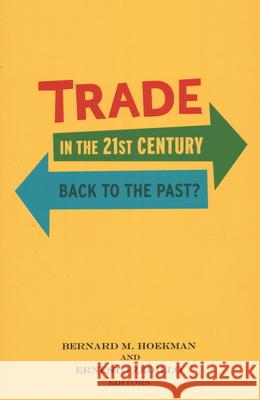Trade in the 21st Century: Back to the Past? » książka
topmenu
Trade in the 21st Century: Back to the Past?
ISBN-13: 9780815729044 / Angielski / Miękka / 2021 / 560 str.
Despite troubled trade negotiations, global trade--and trade policy--will thrive in the twenty-first century, but with a bow to the past.
The repeated failures since 2001 of global trade negotiations and continuing uncertainties about the ultimate success of mega-regional trade agreements, like the recently concluded Trans-Pacific Partnership, have raised widespread questions about the future of global trade policy. In Trade in the 21st Century, two distinguished experts argue that, despite appearances to the contrary, not only is trade policy alive and well, but also that there are grounds for optimism about the prospects for international trade and investment growth in the twenty-first century. Trade in the 21st Century asks a central question: Was the creation of the World Trade Organization in 1995 the high point of multilateral cooperation on trade and investment matters? Is it possible that, in the two decades since its founding, fundamental changes in technology and the structure of international production--such as global value chains and digitization of products--are leading to a renewed focus on unilateral policy processes and regional cooperation, to the detriment of the World Trade Organization? Trade in the 21st Century, with contributions by some of the world's leading writers on trade, covers the key topics in the field: trade policy dynamics in the European Union and the United States; policies by and toward emerging economies, including China; incentives for governments to further open trade or reject past liberalization; implications of mega-regional trade agreements; and issues around digital trade, trade in services, agricultural trade policies; and trade and climate change policies.










